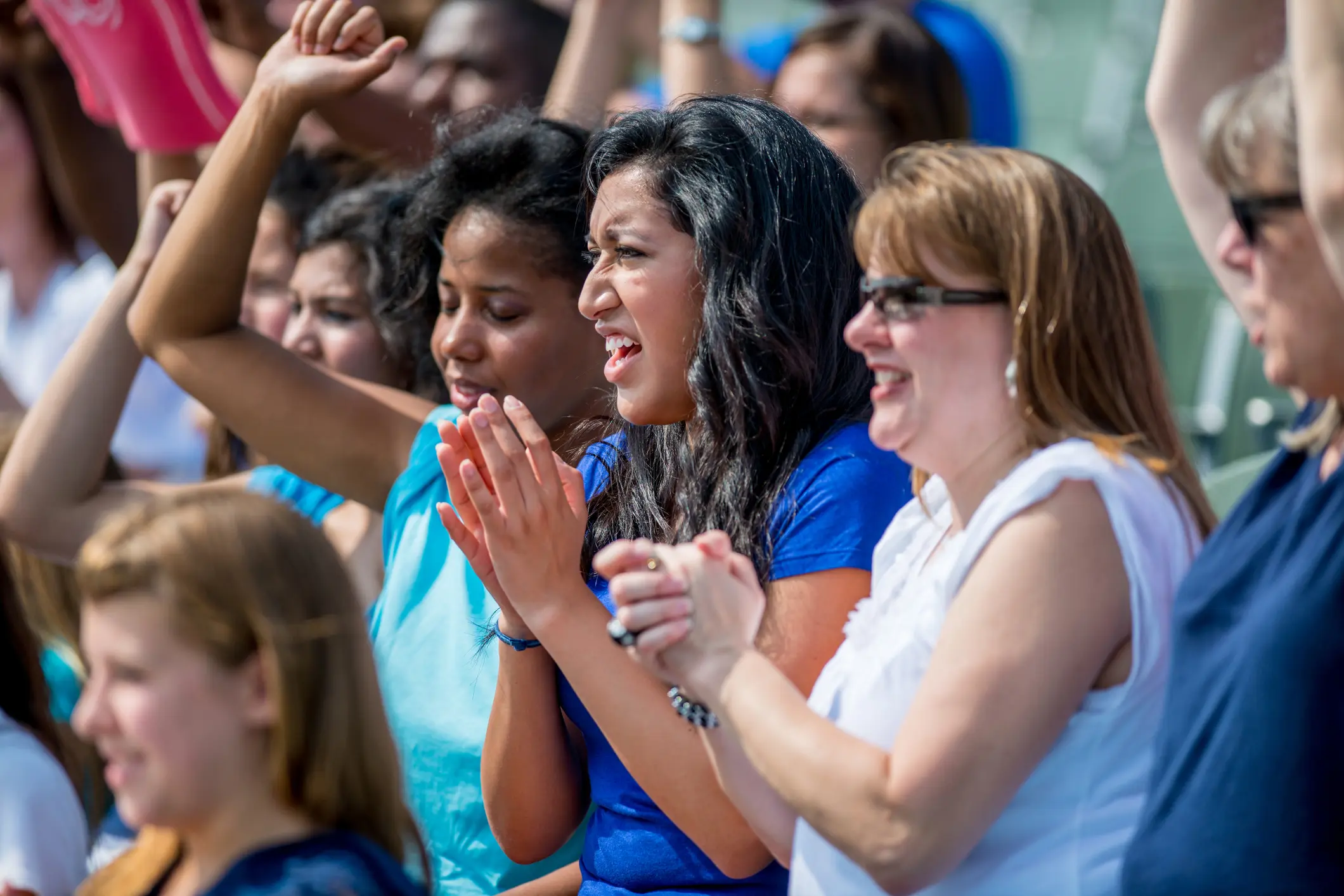
Mar 09, 2018 • 4 min read
Show up but Zip It, Says Sports Parent Expert Nicole LaVoi

Posted in:
When Nicole LaVoi tells people that she studies youth sports parents, she often receives a chuckle in response. It’s an area of study that’s growing as communities work to ensure a  safe and positive sports atmosphere for children. In many cases, youth sports parents are supportive and encouraging when kids need it most. At other times, sideline behavior can negatively affect what happens in the game, and this is what Nicole LaVoi is hoping to change with her research.
safe and positive sports atmosphere for children. In many cases, youth sports parents are supportive and encouraging when kids need it most. At other times, sideline behavior can negatively affect what happens in the game, and this is what Nicole LaVoi is hoping to change with her research.
LaVoi is an author, lecturer, and co-director of the Tucker Centre for Research on Girls and Women in Sport. Her coaching experience and current research have earned her a guest spot on the Way of Champions podcast where she talks about the emotional experience of youth sports parents and “background anger.”
What is background anger?
A term originally belonging to child development, background anger is the idea that a child is the indirect target of verbal or physical abuse. Early research on this topic happened in the home and found that children who heard adults fighting behind closed doors had an emotional response and were more likely to develop internalizing disorders (anxiety, depression) or externalizing behaviors (aggression, acting out).
How does background anger relate to youth sport?
When LaVoi first studied the theory of background anger she realized that it could be used in the context of youth sport. Yelling at the referee, coaching from the sidelines, and spectators exchanging insults are all examples of background anger that affects kids. According to LaVoi’s research, as children perceive more background anger, they are more likely to self-report negative sports behaviors such as cheating, intentionally injuring the opposition, and arguing with the referee. In a sense, kids turn to cheating when they realize how much the outcome matters to parents.
What should parents say at youth sports competitions?
According to kids, nothing. According to research, LaVoi explains that parents should follow three simple guidelines: show up, shut up, and cheer when everybody does something good. When spectators adhere to these recommendations, it’s possible to eliminate the two most common kinds of background anger in youth sport, yelling at the referee and coaching from the sidelines.
Implementing the ABC model
Still, it may be useful to implement LaVoi’s “ABC” model that encourages parents to take the perspective of their child and change their sideline behavior.
A: Ask, “What do I do on the sidelines that you wish I didn’t?”
B: Believe them when they tell you.
C: Change your behavior.
At the end of the day (or game), it’s important that coaches and parents work together to create a positive sports experience for children. As Nicole LaVoi explains during the podcast, winning and character development can happen together, and it’s up to us to keep it that way. LaVoi’s advice seems to line up with what kids are saying. Have a look at this video where kids talk about what they do and don’t want from their parents:
Original source: http://activeforlife.com/show-up-zip-it-nicole-lavoi/
Jaime Neefs, a kinesiology graduate, and child life specialist can almost always be found on a soccer field. Turf or grass, she’s out there using her 20+ years playing experience to coach and referee youngsters just starting out. Besides soccer, Jaime enjoys running, road tripping, and adding bacon to every recipe. Follow Jaime on Twitter, @_JaimeNeefs. Active for Life helps parents raise physically literate kids. At activeforlife.com, parents, educators, and coaches will find fun activities, engaging articles, and free resources to get kids active, healthy and happy.
